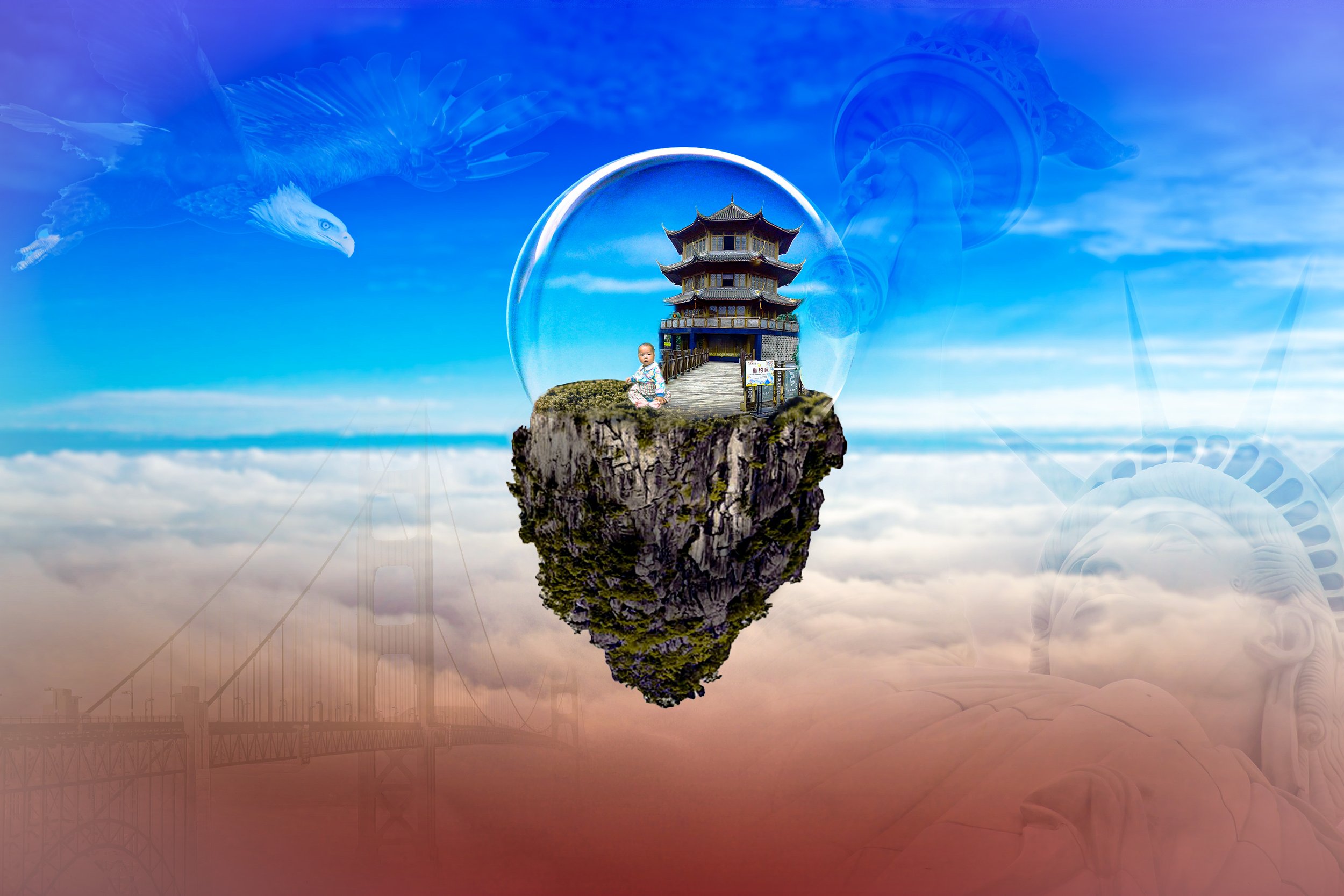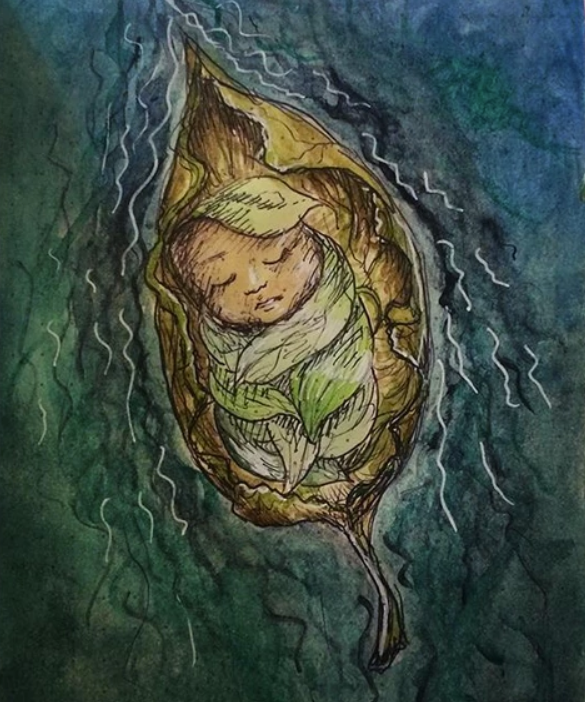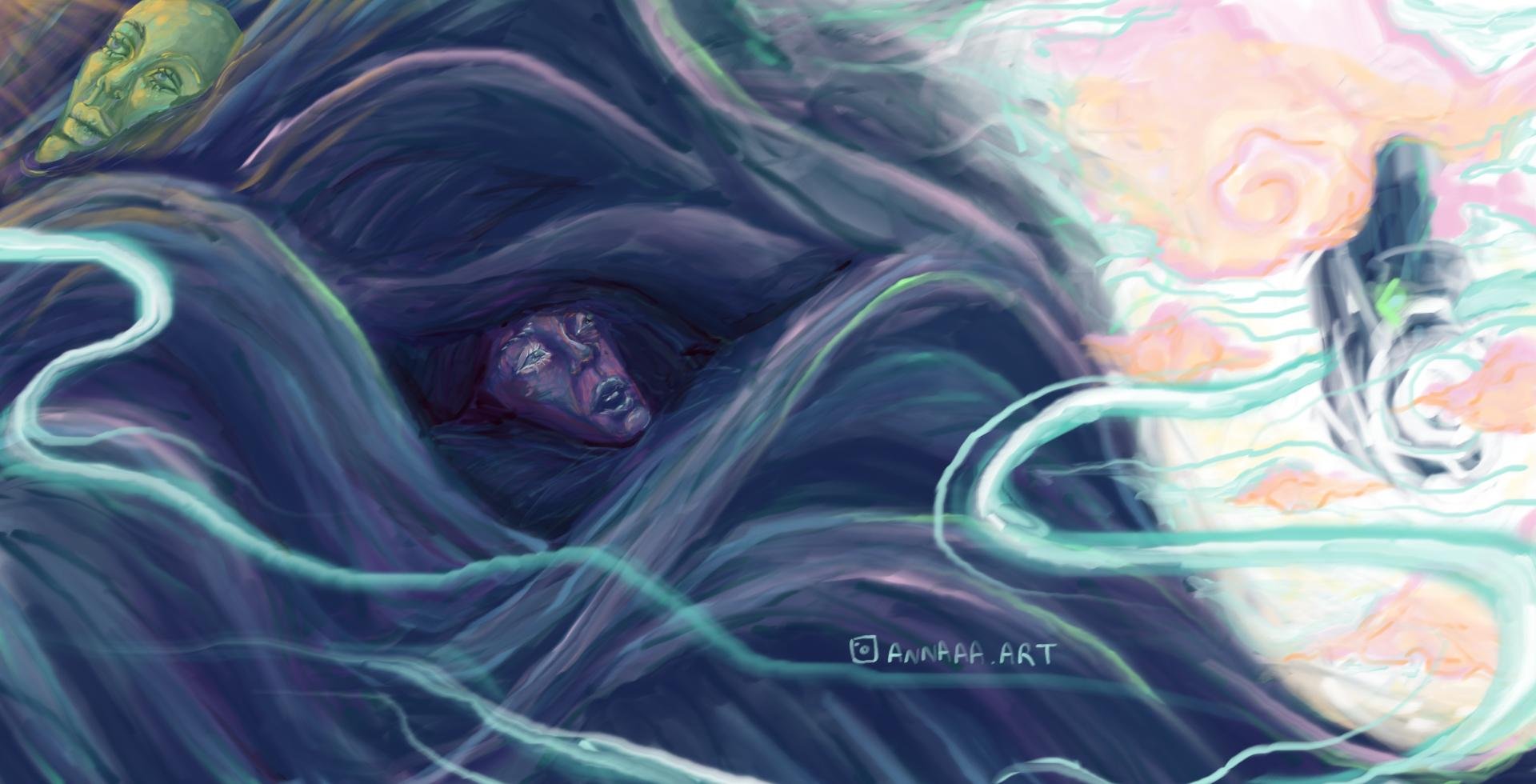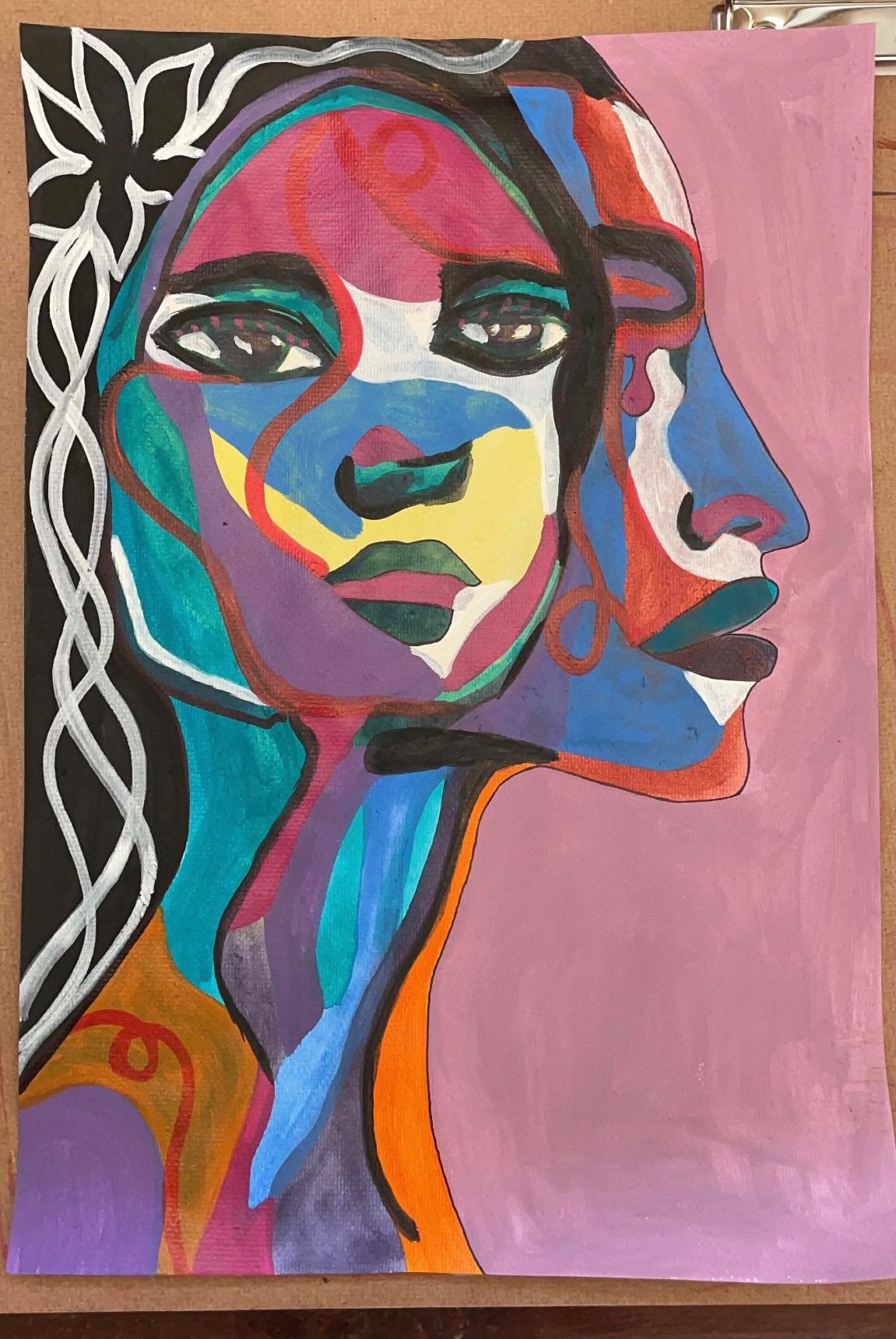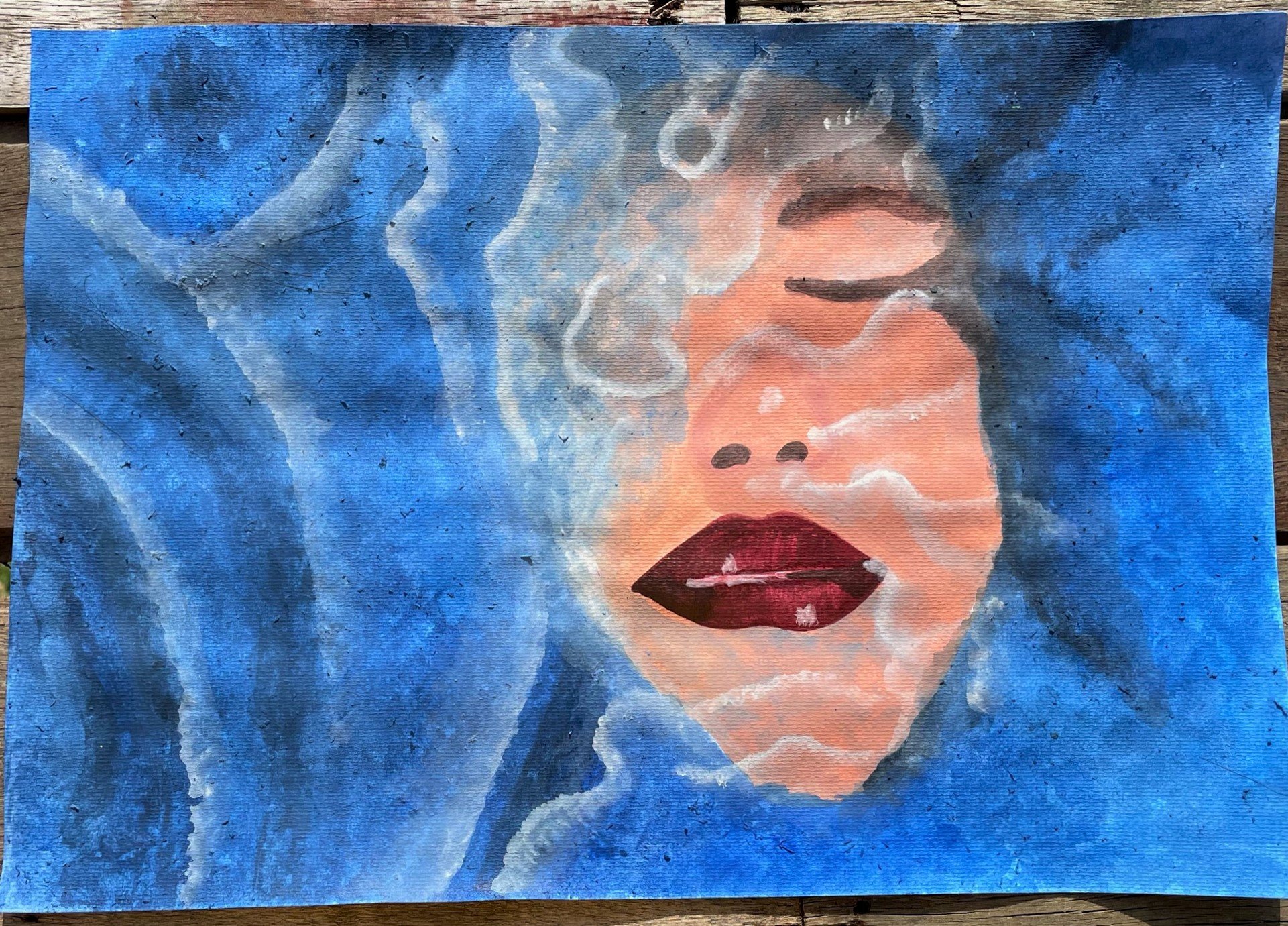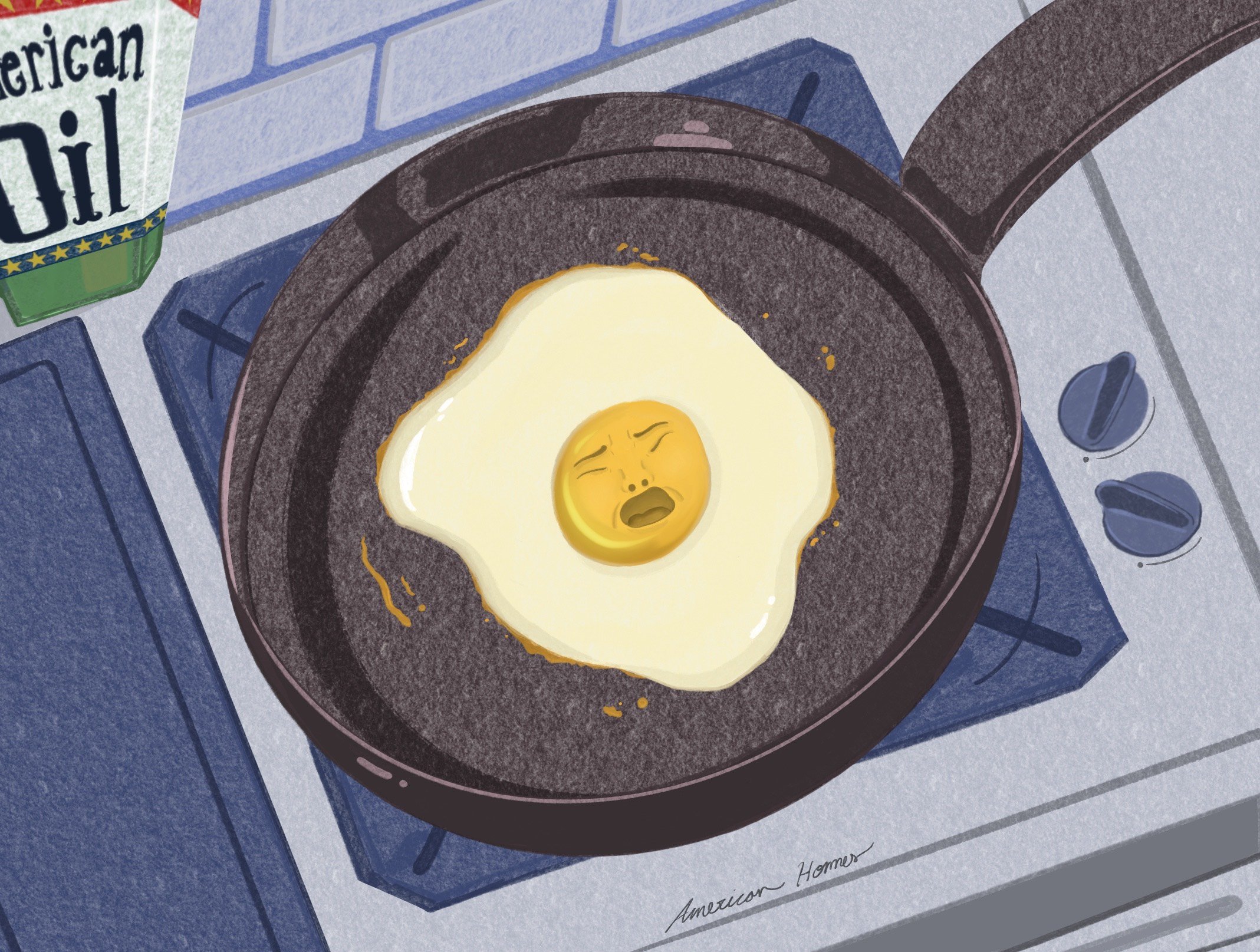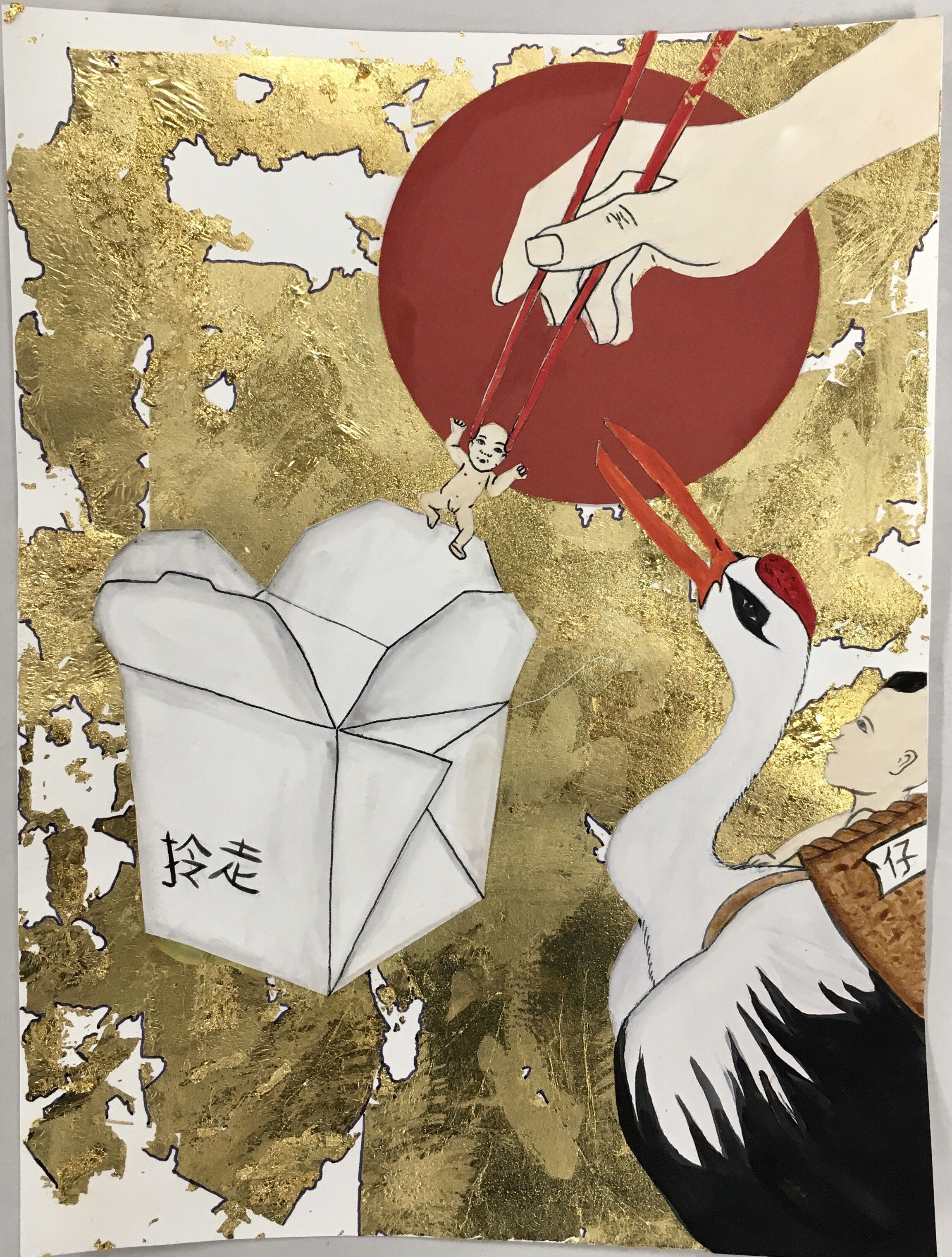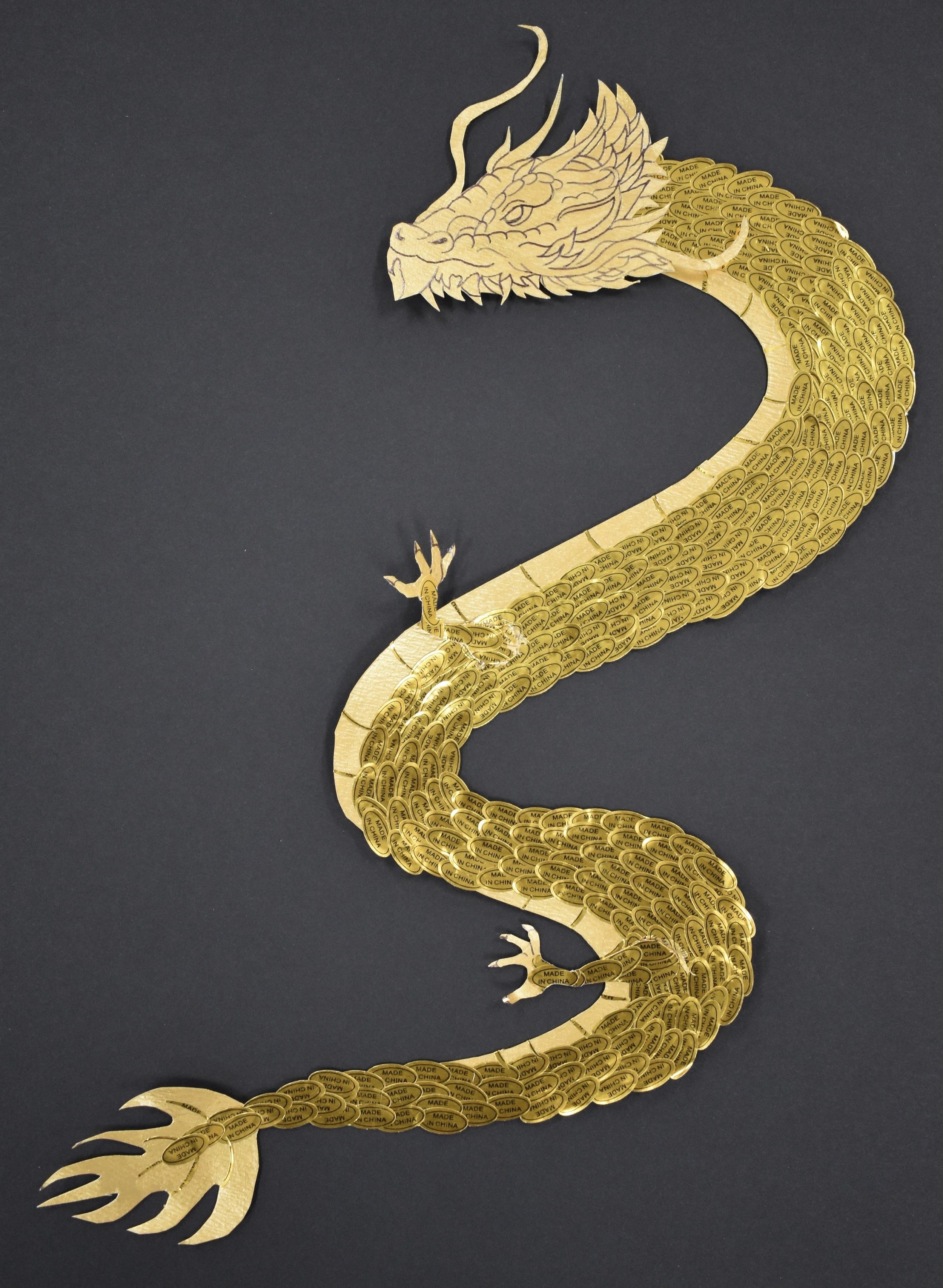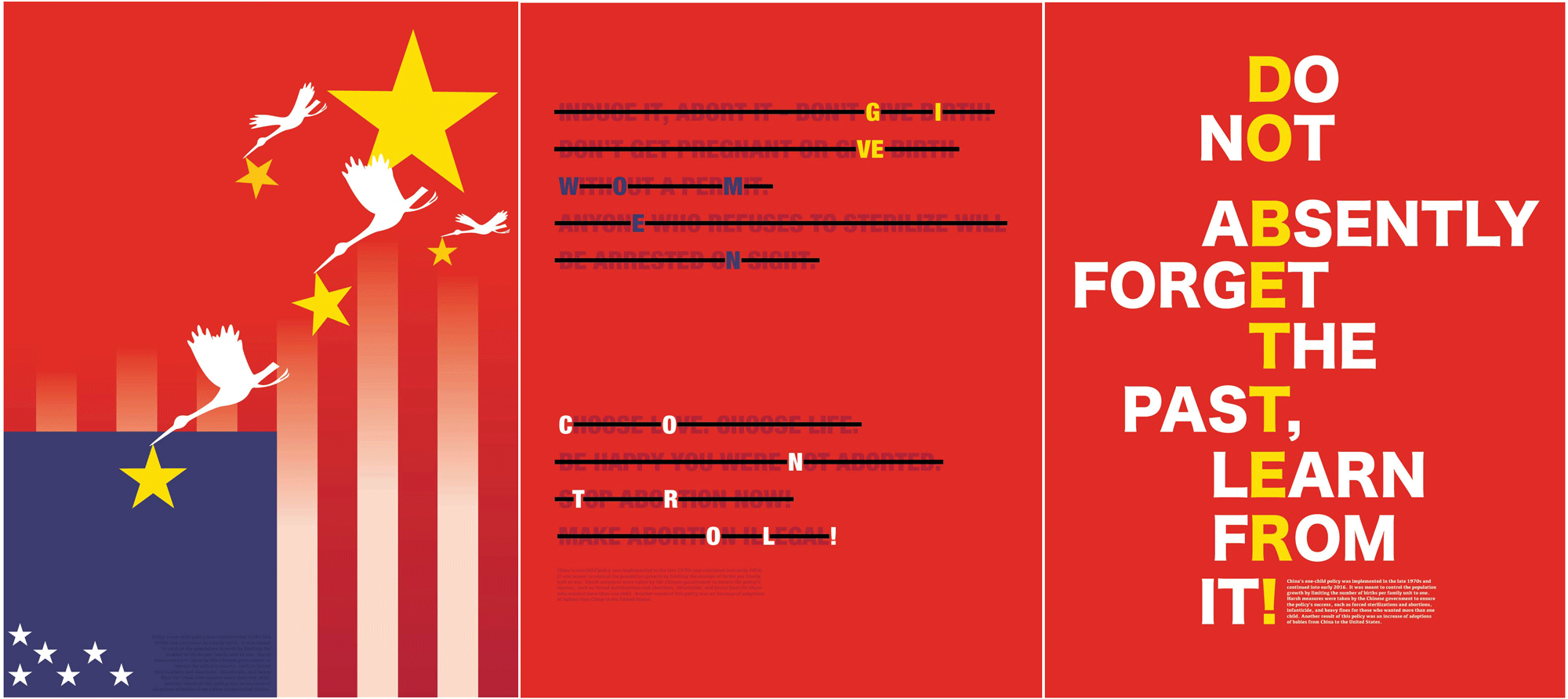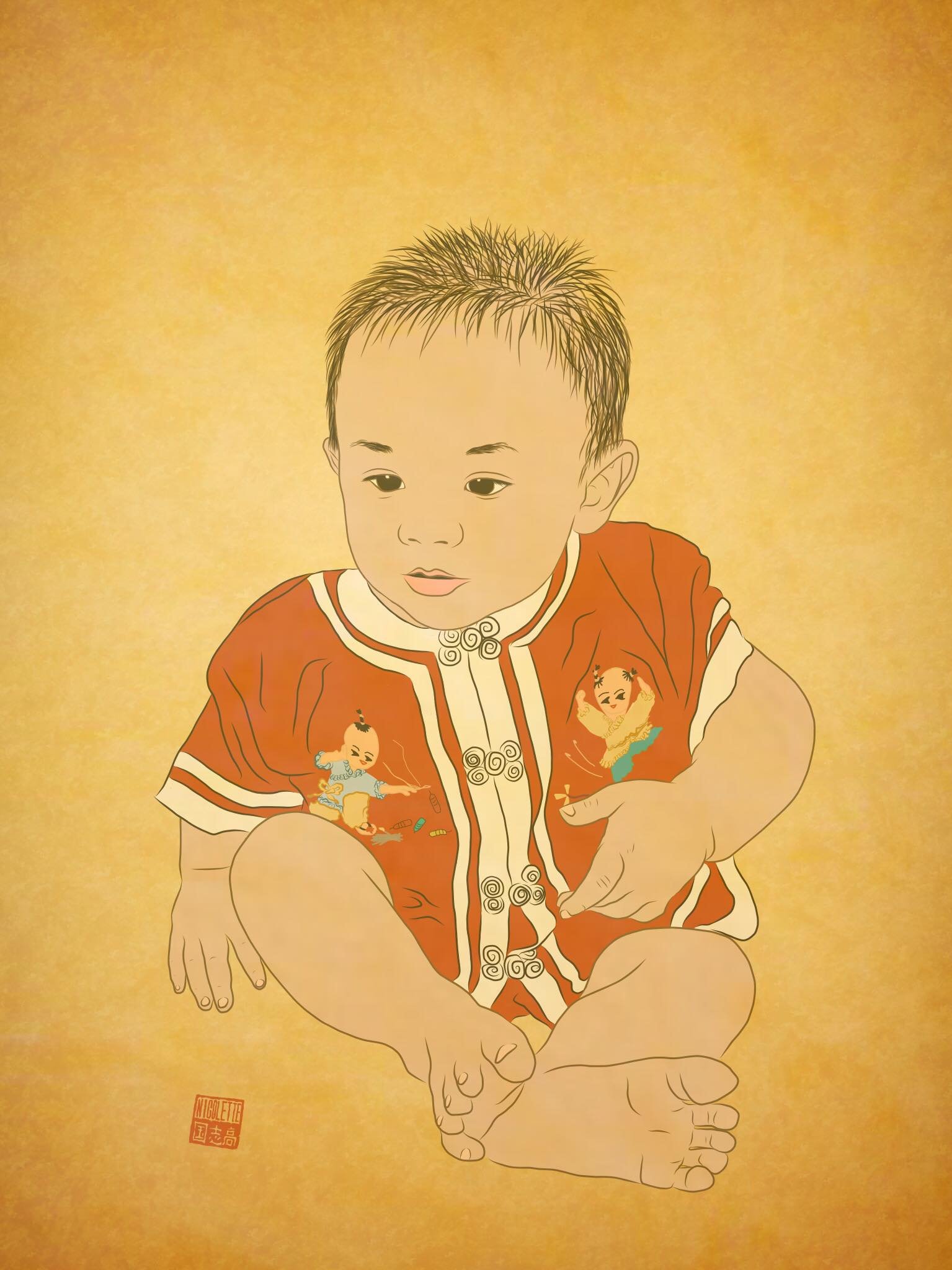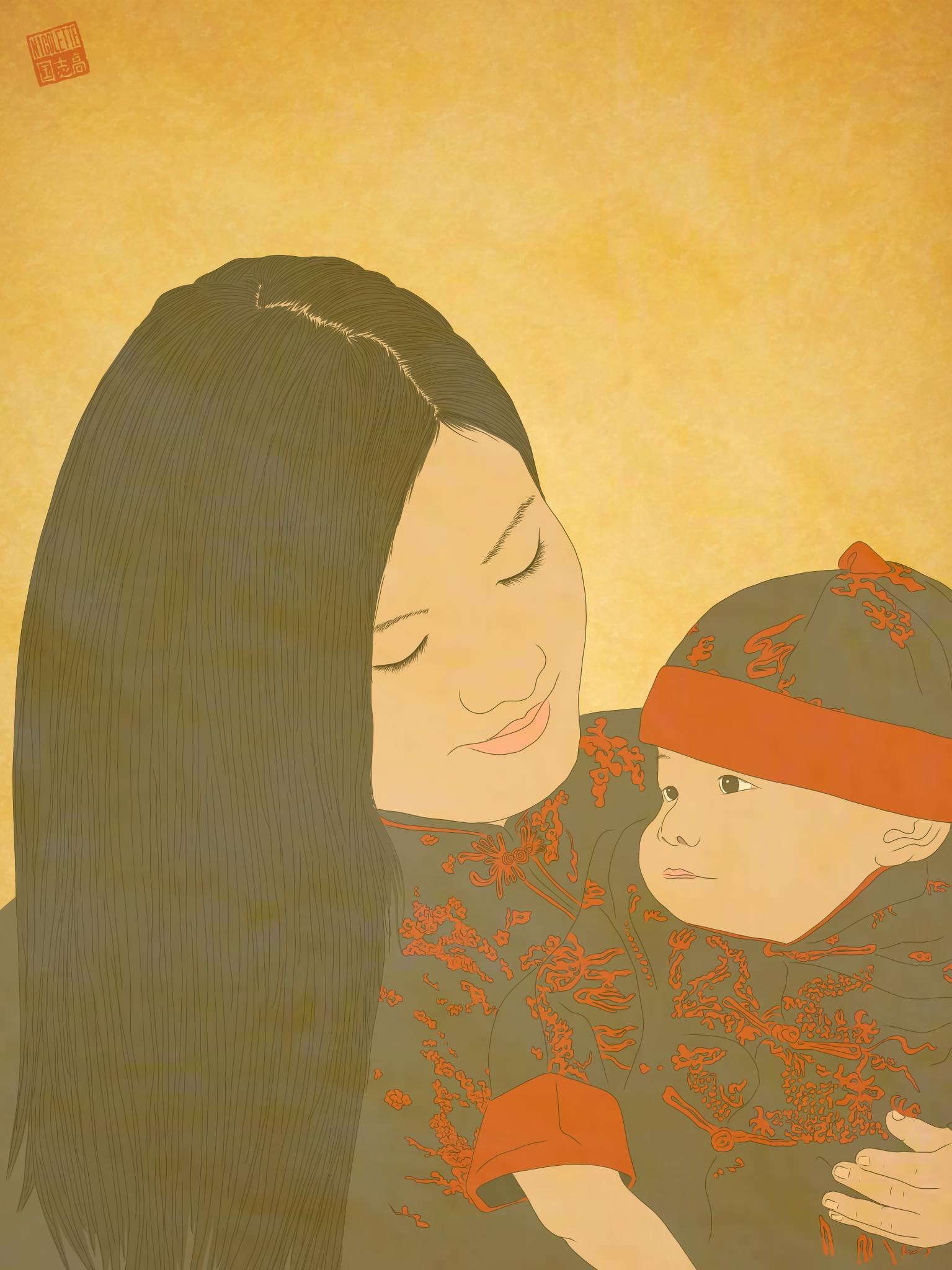CCI’s Summer 2022 project is
a compilation of artistic and creative works
by adoptees.
The anthology explores the theme of adoptees and Asian identity through a diverse set of works. The project also highlights the meaning and intentions behind some of the pieces included.
Hi! I’m Madelyn, and I was adopted from Anhui Province in 2002. I currently study music and psychology at college. In the last two years, I have learned and thought a lot about adoption, identity, and race. I hope to pursue a graduate degree to further investigate these topics. I enjoyed interning at CCI, and I am excited to share this project with the community!
-
Plucked from my homeland
Roots disintegrated, soil beneath crumbled
Attached to nothing
Grasping for the soil that once held me in place
An anchor
Gone forever
A broken bud
Placed in unfamiliar territory
Coaxed to grow
New roots emerged
Planting themselves once again
Settling, but not for long
Pulled once again from familiarness
Placed on new land
Pruned and watered
So much change
Hoping for a break
A nomadic life, now sedentary
Holding fast to the soil
Learning to bloom
A broken bud beginning to blossom
Missing roots from the temporary territory Found again
Growing together again after all these years
Deepest roots now long gone
Many lands apart
Can only imagine where they are
Learning to bloom from a broken past
Holding fast to the soil,
Never to be uprooted again
Some have to be broken
Before they can
Bloom
Artist Statement
Hello! My name is Hailey. I was adopted from Guiping, Guangxi in 2004 and reside in Texas with my parents and younger sister. I will be starting college this fall at Texas State University to major in elementary education. In 2020, I did 23andMe and have connected with several third cousins and a fourth cousin. Having these connections to my biological family as well as the other Chinese adoptees in my life has helped me feel empowered to embrace who I am as a Chinese-American.
I have found that writing is the best way for me to work through all the emotions surrounding being an adoptee. Poetry is exceptionally freeing due to the lack of rigid rules and regulations placed on this type of writing. I can express my thoughts in any poetical form I choose.
I wrote my poem Broken Before Blooming to document the three major identities I have been rooted in- being my biological parents' child, being in the orphanage, and being my adoptive parents’ child. The foundation on which my life began was broken, and the systems put in place in this world are broken, but we adoptees are not broken. I am not broken.
-
revere, massachusetts, 10am
you could say i was born in a waiting room
aged 25 on paper, for who
knows how long i’ve been
burning blackened fingerprints on a blank white page.
my face knows no likeness except its own,
no border except the cut edge
of a photograph held between my mother’s
thumb and forefinger.
马海士 :
from a town that tastes of copper, a sea of girls
uprooted — a tide of weeds
laid to dry on the side of a road.
a country’s greatest irony
is naming a girl a scholar
when she cannot write herself o u t
before being written off.
-
Day one you held me close after I was born, smoothing over the small tuft of hair on my head. You shushed and coo-ed me while I cried from exhaustion. We spent the night together in silence laying in that hospital bed; one hand wrapped around your dainty finger, the other in my mouth.
Day two you took me home and laid me in my crib. Vibrant colors covered the walls and captured my ever-fleeting attention. My eyes wide with fascination. You changed my diaper and tolerated my crying. Dad picked me up and bounced to his own made-up tune, and yet somehow, he was still off-beat.
Day three you kissed my forehead when the loud crashes of the thunderstorm hurt my underdeveloped ears–my cries drowned out by the thunder. We lost electricity that day, but between the flashes of lightning I could still see the outline of your face and I studied every crease diligently. I remember how you told me nothing would hurt me as long as you were there. You were my hero in that moment.
Day four you and dad held me between you two while watching The Lion King. The captivating visuals and catchy tunes appealed to my childlike wonder. I can see my younger self in Simba–courageous, friendly, and above all, a powerful set of lungs. At that age, I was just happy to be surrounded by loved ones without a care in the world; Hakuna Matata.
Day five you introduced me to my brother. He waved obnoxiously in my face and made dumb facial expressions, yet I smiled anyways. He was excited to have someone to call mèimei [younger sister]. You handed me to him, and I proceeded to spit up on his shirt.
Day six you brought me with you to the market and let me pick out noodles, sausage, napa cabbage, spices, and seafood–all the ingredients needed for traditional hotpot. With your attention elsewhere, I reached out towards the stray dogs, wanting to pet their soft fur. The sixth sense of motherhood alerted you of the danger and you shooed them away. Although I was upset in the moment, you probably saved me from a rabies shot.
Day seven I got bored and decided to see how loud and long I could scream. I drove you and dad crazy, but you still came running every time. You tried giving me a pacifier, giving me formula, changing my diaper, but every time, it wasn’t until you lifted me into your arms that I’d stop crying. I still am an attention-hog.
Day eight you worked in the garden with me wrapped in a mei-tai [baby sling]. You pulled up green onion, cucumber, and carrots, harvesting them before autumn was swept away by winter winds. I pulled at your hair, grabbing the soft clumps and letting them fall between my fingers. You laughed at my ability to be so easily entertained but scolded me whenever I pulled too hard.
Day nine you showered me in attention, and I loved every moment of it. You kissed my face and held me tight. I could live in that moment forever.
Day ten you left me on the side of an unmarked backroad and didn’t look back. You hid your face with a hood to avoid being seen.
Day 7,268 I don’t know your name or if you still think about me like I think about you. Am I your daughter? Or am I a repressed memory? Does gēge [big brother] still remember me? Does he ask about what happened to me? I’ll never meet you and even if I could, you wouldn’t be able to understand me. I was only ten days old when you abandoned me, at least that’s what you wrote on the red note that was pinned to my clothing when they found me. No name, no birthplace, no identity. Just October 16, 1999. I want to hate you; I want you to know all the pain and trauma you’ve caused. But I simply can’t. After 20 years, I’m tired of blaming you for the all that has gone wrong in my life. I’ve learned that I will never have closure, and that’s okay. I’m sure you’re just as traumatized, it’s been a long life and we’ve both made mistakes along the way. If you can promise me that we’ll both stop dwelling on the past and move forward with our lives, then I’ll call it even.
-
Not ___ Enough
Not Asian enough.
Not White enough.
Not old enough.
Not queer enough.
Not fully educated enough –
a paused degree right as the cusp.
The “enough” hints at this partial recognition of being
since I showcase enough attributes that others can admit to seeing.
To be left as an infant some would consider tough.
I live an ongoing theme of not being enough
4x More Likely
My life started out with a lot of loss.
Just look at how massive the ocean was that I crossed.
My birth parents were my first to lose
and one of my adoptive moms short-circuited another fuse.
I’m not supposed to be here.
I feel like the end is always near.
What is your experience with loss?
You can find me wondering and contemplating late at night
in a lit up Ross.
Jar Baby
I could have been a jar baby,
But instead I had two white women save me.
I could have died out on the street,
But instead I soared over an ocean, thousands of feet.
In therapy it’s my emotional barrier.
Instead it could have been:
bury her.
-
Dear Lilah
July 2022
I hope you’re doing well. I’m sure that you’re doing good things, or at least something interesting. For years, I had always believed that adoption was a beautiful story. From a distance, it is, a loving family searching for a child to complete their family. In SOC-3960-101 class I learned about double consciousness, Fanon’s theories about colonization, and the negative impact that cultural assimilation creates within people. At this time I started going to therapy to discuss some unsolved trauma and buried resentment about my adoption. Fanon grew up under French imperialism and created a theory about colonial racism where the colonizer creates an internal bias toward the colonizer. The colonizer brings with them, the idea that the colonized are inferior to the colonizer. He saw black authors articulating the idea of a displaced identity of colonized black Americans in their literature.
Fanon wrote a book titled Black Skin, White Masks and within it, he talked about cultural assimilation. Cultural assimilation is the process that occurs when a person’s original culture is replaced with another. He also talked about how cultural assimilation damages the colonized people. Fanon stated that the culture of colonialism didn’t allow people to create an independent identity outside of the collective and how that inability to create an individual identity creates psychological damage. He stated that the damage created is felt collectively and on an individual level within those who are colonized. He discussed colonial racism as the colonizer’s culture and beliefs that stated that they were superior to the colonized. He anticipated that those who were affected by colonial racism would also be affected by internalized racism and lack a sense of self.
His example was that colonized black people were unable to celebrate their culture and they were also unable to celebrate white culture. They were put in a position where they had to adopt the colonizer’s view of the colonized. Fanon stated that colonialism stifles the free will of the colonized and dehumanized them.
Fanon’s theory made me think about adoption and how adoption is an example of cultural assimilation. What better way to eradicate a culture than to raise a child completely alienated and separated from their country of origin. Of course cultural assimilation occur when an original culture is replaced and adoption is relevant only on the basis of individuals however, it still stands as a good example. Adoption erases a person’s personal connection to their original culture and stops them from creating an independent identity outside of their family group. Adoption erases a person’s personal connection to their original culture, isolates them and forces them to learn about their own culture from the outside. International adoptions are a perfect example as the adoptee learns about the culture of the colonizer (their parent) before they learn about their own culture, even then, they learn to view themselves from their parent’s point of view. International adoptions often involve white parents and children of a minority being brought to the United States of America. Even if the proposed adoptive parents have good intentions and genuinely want to raise a child, by choosing to adopt internationally or choosing to adopt ethnic children they inevitably implant the adoptee with an implicit bias and a distorted view of themselves. Oftentimes adoptees feel isolated, unable to celebrate white culture, and unable to celebrate their own culture. The adoptee may be instilled with internalized racism or a hatred of their appearance and because they don’t ‘fit in’. As a child, I remember hating the fact that I would turn brown in the sun and that I had straight black hair. I wanted to be like my friends who had fair hair, and light skin. I had met only two other asians, and they were also adopted. We would compare notes about what we knew about China from textbooks, stories, and movies. Because our adoptions resulted from the One Child Policy, I adopted a biased view against China as I believed them to be a country that hated women. I used to re-tell my story by stating that I had been ‘thrown away’. My parents were unable to help me as my mother’s experience with China was based around her study abroad program and my father had never been interested in China until they went to pick me up from Beijing.
Fanon’s second book The Wretched of the Earth discussed the colonialism binary wherein he went over native and settler perspectives. Settlers were created around the idea of ‘natives’. The settlers’ existence depended on the systems that the colonizers created. And of course, their sympathies lay with the metropolitan culture they were accustomed to and were biased against the ‘native’ or local customs. Fanon talked about spatial existence in colonies, to illustrate, settlers created private societies that were segregated from the natives. Natives areas were seen as disorganized, not secured, and more crowded. The settlers create segregation by building their own societies next to the natives creating a distinct difference between the metropolitan society of the settlers and the disorganization of the natives. The natives would see the order that the settlers area had and would want to usurp their control over the area. Fanon believed that the colonizer established their systems through violence and that because they systems were established through violence they could only be overthrown through violence. From Fanon’s point of view, decolonization came in three stages. The first would be when the natives tried to emulate the colonizers, they would use their language and write like them. Then their writers would retrieve the folk art and culture from the original culture in opposition to the European narrative. Native writers would write sentences that captured the heart of natives. These sentences would ignite the native’s wish to rebel. Fanon stated that the decolonization movement must start from the bottom, it couldn’t come from the top, those who were disadvantaged had to begin the movement and that from there, others would join. Fanon believed that natives would only become aware of the difference once they could see the hypocrisy of the white people. For a moment, the mask would be lifted and they would see the hypocrisy of the world they lived in. Fanon believed in a group of natives who would side with the colonizers, these people would be known as the native elite. Once the decolonization process was complete the oppressed would become the oppressor.
I believe that Fanon’s colonialism binary is reflected in the relationship of the parents and the adoptee. This would also apply the the relationship between the adoptee and the predominantly white society they live in (if they lived in the US). Oftentimes, international adoptions circle around a white couple wanting a child, but I theorize that mot of the time, they also come from a deep rooted desire to be a savior. By taking a child out of an ‘impoverished’ or periphery country, they believe that they are ‘saving’ a child from a horrendous future. The term ‘white savior’ applies to when white people believe that they are helping minorities but oftentimes, whenever they try to help, they end up doing more hurt than help. Common white savior uses phrases such as “be grateful..”, “I saved you from…”, “Your life would have been so much worse if I hadn’t…” you get the picture. Many is the time when adoptee’s describe their parents telling them about how horrible their lives would be if they were not adopted. In the Facebook group SAAT (Subtle Asian Adoptee Traits) adoptees would talk about how their parents would threaten to ‘return’ them or belittle their children for not living up to the supposed stereotypes that they based their adoption search on. Even when adoptee parents are open minded and lack the savior complex adoptees receive comments from strangers and their community that expand upon the white savior complex. Sometimes these comments can take on a joking tone, for example a church goer at my old church once told me I bet you’re glad your parents adopted you or you’d have to be a child bride.” While I do love my adoptive parents, I don’t feel grateful to them nor do I feel that I owe them anything simply because they decided to adopt from China instead of in-state.
-
When I was younger, people would call me “China girl” and tell me to “open my eyes”. When I got older, they told me I was “white-washed” and a “Twinkie”. As a baby, strangers saw me as both a “burden” and a “blessing”. As I grew up, they formulated fairytales about me while others twisted my truth into tragedy. Am I a precious gift? A distressed child in need of saving?
All my life, my identity has been questioned – by others and by my own mind. I am an imposter. An understudy for a role that is doubly not mine. Trying desperately to pass myself off as a character the audience will recognize and applaud. I wear a mask with the face of a girl with a big personality and bigger ambitions. People tell me I’m intimidating, unapproachable, serious. They don’t know that this is the face I make when I’m wondering whether they can see right through me. Do they really know me at all? How can they when I don’t even recognize myself?
Feeling comfortable in my own skin is a battle. Forget my height, my complexion, my features – it’s about my soul not matching my body. At times I feel like a chameleon. Blending into my surroundings, going unseen; or other times, shapeshifting like putty in a stranger’s hands. I can be a native in any foreign country according to the locals I meet. Even the girls in different photos of myself present themselves as distinct entities – different races, faces, traits, and fates.
Where do you go when you don’t fit in here or there? Fitting in is hard but sticking out is harder. Never knowing where you belong makes you wander.
You walk under a cloud of doubt on the way to class. You splash through puddles of the unknown on the way home. You didn’t ask for this. And most days, you don’t even notice. But other days, water soaks through your shoes, thoughts seeping into your unsuspecting mind.
Up until now, life has been about striving for perfection – always biting off more than you can chew in hopes that somehow you’ll prove your worth when no one even asked you to. Holding yourself to a higher standard no longer means aspiring to greatness. Rather, it means internalizing blame, bracing yourself for the consequences of any action, feeling the sting of personal failure with every setback. Overthinking until your brain shuts down.
How do you handle not knowing what’s ahead of you but also not knowing a portion of what’s behind you? What do you do when you love to let people in but you’re afraid of being rejected and even more afraid of being abandoned? What happens when you start seeing your past through a new lens – one where you see your deepest insecurities holding you back at every turn? Regrets tied directly to your roots.
What happens? You find yourself reenacting your trauma. Sticking around too long, serving as a door mat or punching bag. Throwing your all at immovable, brick walls. Climbing up ladders just to hit your head on glass ceilings. Never looking in the mirror because the reflection staring back doesn’t seem familiar to you.
Every obstacle is a stepping stone – that much is clear. But to where, there’s no way to know. As you move forward, you learn to count on yourself before anyone else. You learn that independence is the first step to finding yourself. You celebrate the days when you feel confident in who you are and how you feel. You learn that fitting in a single mold isn’t all that it’s cracked up to be.
-
Why am I the only yellow, Daisy?
Walking around with Momma in the open,
here and there, big or little
they all stare at me.
My jet-black hair, smooth as silk big people say and
skin like a banana, kids tell me but
eyes,
eyes the shape that is not yours.
Why am I not like you?
Or anyone else here, a
White daisy.
Looking down at me
Momma reminded me again you're a
Chinese Daisy of another Mom’s
Garden.
You’re my special Daisy, that’s why
they stare.
I hear big people ask Momma
about my roots.
Where she is from.
How old was she. They say
from high above.
Momma does all the talking, while I
look around for a yellow
daisy like me, but all I see are
White daisies.
When we got back home,
standing in front of a mirror,
all I wanted to see was White daisy.
Why am I the only yellow, Daisy.
-
my cat is dead
my cat died today
i found her on the chair,
under the table, drool dripping
onto the hardwood floor
when i was little,
i told her were were alike
both brought into this family,
adopted,
my dark hair strewn across her
black fur
we matched
in two days,
i will be 21
and i no longer have my cat
two days means the death of my childhood
two days means the death of my suburban fantasy
two days means the death of my hopes for
my twenty year old self
i hate birthdays
i was born into a world that wasn’t ready for me
born into a world that wasn’t meant for me
how fast time spins makes me nauseous
nauseous like when i found her cold limp body
Sunday Floods
Bundled, was she even?
Your pleasure at the expense
Of her pain. Joyous turned
Disgrace. Likewise, she
Abandoned pleasure for
Pain, for perfection.
Good like the two shoes
She wore to America.
She learned from you,
How to follow the rules.
Hushed contention, heartache
Like the sounds she now
falls asleep to
Pieces scattered between continents,
A quest she never asked for.
Searching for the moon and stars,
Rising signs never found.
Nothing soothes
the silent ache of loneliness
Purple heart, streaked with
Black and gray flown across the
Sea, you call this love. Wishing you’d
Have extinguished the fire
Before it burned. Before it burned
Right through her purple heart
Bled through the cracks of her
Footsteps, spilling from the bloodlines
She’d been taught to deny. Lucky,
But with endless loss. Lucky,
But rather never to have been.


